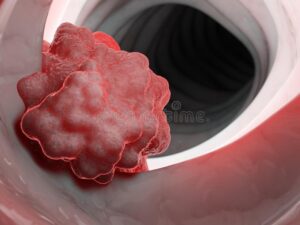Date :23-Mar-2023

rectal cancer
Rectal cancer is a type of cancer that originates in the rectum, which is the last several inches of the large intestine that connects to the anus. The exact cause of rectal cancer is not known, but certain factors can increase the risk of developing this cancer, including a family history of colorectal cancers, personal history of inflammatory bowel disease, and an age over 50. Common symptoms of rectal cancer include changes in bowel habits (such as constipation or diarrhea), narrow stools, rectal bleeding, abdominal discomfort or pain, and unexplained weight loss.
Treatment options for rectal cancer may include surgery, radiation therapy, chemotherapy, or a combination of these treatments, depending on the stage and severity of cancer. It is important to get regular screenings for colorectal cancer, especially if you have an increased risk of developing this cancer. With early detection, rectal cancer and other types of colorectal cancers are highly preventable, treatable, and curable.
Rectal cancer treatment options can be summarized as follows:
Surgery: This is often the primary treatment for localized disease. It involves removing the cancerous tissue and may be followed by chemotherapy and radiation therapy.
It’s important to note that the specific treatment plan for rectal cancer will depend on multiple factors, such as the stage and location of cancer, as well as the patient’s overall health and preferences. Consultation with a doctor or oncologist is highly recommended.